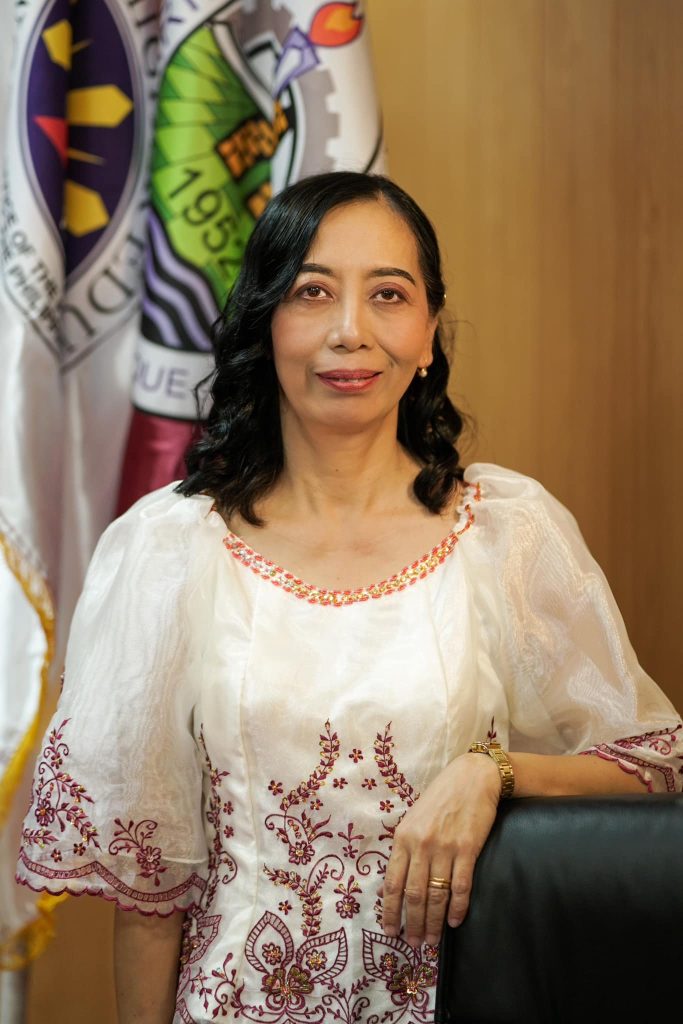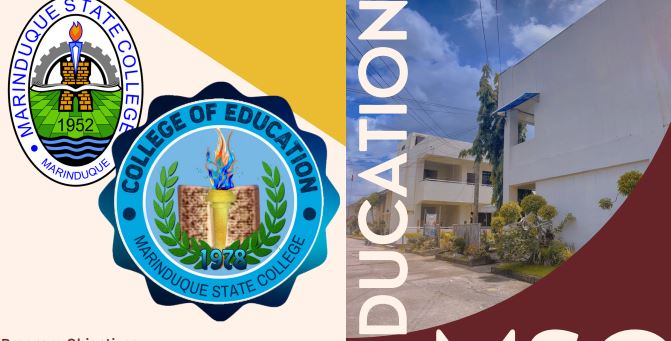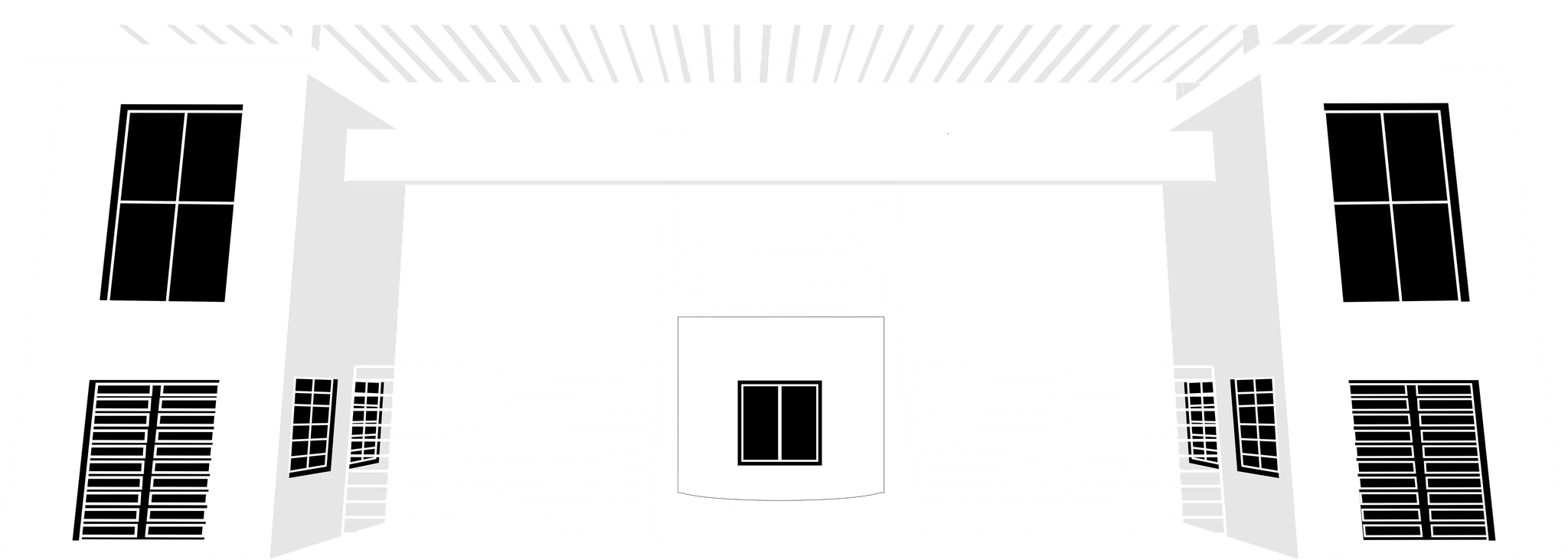About Us

Dr. Joy S. Montejo
Dean
History
Teaching in the Philippines was professionalized by virtue of Presidential Decree 1006 on January 1, 1977. It required teachers to pass the Professional Board Examination for Teachers administered by the Civil Service Commission. In 1994, another law was enacted the R.A. No. 7836 known as Philippines Teacher Professionalization Act of 1994. This law like P.D. 1006, recognized the vital role of teachers in nation building. The act created the Board for Professional Teacher, a collegial body under the general supervision and administrative control of the Professional Regulation Commission (PRC). The board is embodied to administer the Licensure Examination for Teachers (LET) and determine the granting of license to teach.
The founding of Marinduque School of Arts and Trades (MSAT) opened the way to produce educated Marinduqueños. The school was then mandated to offer Vocational Secondary Curriculum and Two-Year Technical Program.
The Marinduque State college – School of Secondary Teacher Education (MSC – SSTEd) started in 1976 previously called Professional Industrial Education Department (PIED) with the course offering Bachelor of Science in Industrial Education (BSIE).
As a subsequent to DECS Order no. 28, s. 1975 authorizing Marinduque School of Arts and Trades (MSAT) to offer four-year degree – the Bachelor of Science in Industrial Technology. On September 13, 1976, MSAT was permitted to offer Bachelor of Science in Industrial Education program with specialization in Mathematics, Chemistry, Physics, Automotive, Drafting, Electricity, Industrial Arts, Machine Shop and Women Vocational Courses (WVC). This happened during the superintendency of the late Andres Gonzales Malabed, Jr. under the Secretary of Education, Culture and Sports (DECS) Juan L. Manuel.
The first batch of BSIE was composed of 30 students, 27 of them graduated in 1981. All of them immediately got employed and 70% passed the Professional Board for Teachers (PBET).
From then on MSC has been producing quality teachers which started to supply DECS Division of Marinduque. Year after year, BSIE graduates have been part of almost every private elementary and high school within and outside the province until school year 1996-1997 the last batch of BSIE graduated.
An evaluation of MSC curricular offerings by its stakeholders was undertaken. A common observation that BSIE is seemingly a duplication of the Bachelor of Science in Industrial Technology effected the gradual phase-out of BSIE replacing it with Bachelor of Secondary Education with its new area of specialization which are Biology-Chemistry, Biology-Physics, Social Science, retaining Mathematics while Technology and Home Economics replaced WVC.
To attune the curricular offering to the need of the community, additional area of specialization was offered in school year 1999-2000 – the Physical Education, Health and Music (PEHM), the first batch of which graduated in 2002 – 2003.
As a continuous role to serve the community MSC added one more area of specialization – Music Education starting school year 2008 – 2009.
The unprecedented performance of the School of Education now called College of Education pave the way to reach its current status as the college having the program with the highest accreditation status granted by the Accrediting Agency of Chartered Colleges and Universities in the Philippines (AACCUP), Inc.
Program Objectives (CMO No. 74, 75, 78, 82 s. 2017)
- Articulate the rootedness of education in philosophical, socio-cultural, historical, psychological, and political contexts.
- Demonstrate mastery of subject matter/discipline; Facilitate learning using a wide range of teaching methodologies and delivery modes appropriate to specific learners and their environments.
- Develop innovative curricula, instructional plans, teaching approaches, and resources for diverse learners;
- Apply skills in the development and utilization of ICT to promote quality, relevant, and sustainable educational practices;
- Demonstrate a variety of thinking skills in planning, monitoring, assessing, and reporting learning progress and outcomes;
- Practice professional and ethical teaching standards sensitive to the local, national, and global realities and;
- Pursue lifelong learning for personal and professional growth through varied experimental and field-based opportunities.
Program Achievements
- ISO 9001:2008 certification was awarded to the college and the entire organization in February 2017
- ISO 9001:2005 recognition was received in August 2018
Partner Institutions
- Collaborated with the two top universities in the nation, Pangasinan State University and Bataan Peninsula State University
- Collaborated with DepEd on our courses for experimental learning and extension programs
- College of Education is an institutional member of both the International Association of Scholarly and Publishers, Editors and Reviewers (IASPER) and the Philippine Association for Professional Teachers
Board Examination
Licensure Exam for Teachers
ELEMENTARY LEVEL (March 2023)
MSC Boac: 100.00%
MSC Santa Cruz: 38.04%
National Passing Rate: 40.76%
Source: prcboard.com
SECONDARY LEVEL
MSC Boac: 68.52%
MSC Santa Cruz: 50.00%
National Passing Rate: 46.94%
Source: prcboard.com


